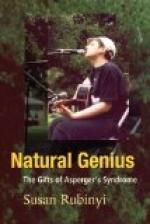Yet, as we look out upon this mighty sum of things in the external universe, the level earth stretching off to some ascending ridge in the horizon’s blue distance—the boundless deep spread afar, till, at the misty edge of vision it bends, in mingling threefold circles, to embrace the globe, the impenetrable below and the infinite above him, how slight and insignificant a creature he seems! like a fly that clings to the ceiling, or a mote that swims in the sunbeam, one of the mere mites of nature, easily lost by the way or a frail figure ready to be crushed by any stroke of the ponderous machinery mid which he moves. When he reflects on his condition—his brief date, his speedy doom—how inconsiderable his existence appears! Or when he regards himself as not a compound of matter merely, but as a living soul, how easy it seems, as his contemplation runs out absorbed into the wondrous glory of the world, for all the vital energy which is for a moment insulated in his frame, when his frame dissolves, to pass into the general substance from which it came, the thinking creature ending as it began! But a voice from heaven cries to him and says, “Because he hath set his love upon me, therefore will I deliver him. I will set him on high because he hath known my name; with long life will I satisfy him and show him my salvation.”
This love of God makes the society of all human affection. “God made the country, and man made the town,” is an oft quoted line; and not seldom it is implied that the open or thinly-peopled landscape is somehow a better and holier place for the soul than the thronged city. But let it not be forgotten that man himself is God’s work and His highest work on earth. Would we sing our psalm now or hereafter with the sweetest relish, we must go forth from any little circle we may have drawn around us, of private ease and personal comfort, in friendly intercourse to hear the cry of the unfortunate, the sighing of the prisoner, the sob of the mourner, the groan of the sick, the appeal of the injured and oppressed. By our aid, consolation and succor, we must gather their voices into the chorus, before, with perfect satisfaction, we can mingle in it our own.
Upon a Sabbath day, I walked amid all those charms and fascinations, in which nature can bind us as in a spell. I passed through green aisles of woods, that were ever-shadowed and made fragrant with every various vegetable growth of this temperate northern clime; while the morning beam of the sun in heaven fell brightly aslant the leaves and branches; and the birds, that my lonely step startled from their perch or nest, flew from glen to glen, making with their song, save the murmur of the breeze in the boughs, the only sound I could hear. At length, the high-arched avenues of this immense forest-cathedral let me out upon the broad, open shore, where I saw and heard wave after wave break on the rocks, with shifting splendor and that mellow thundering music which so




